CSotD: After Further Review …
Skip to comments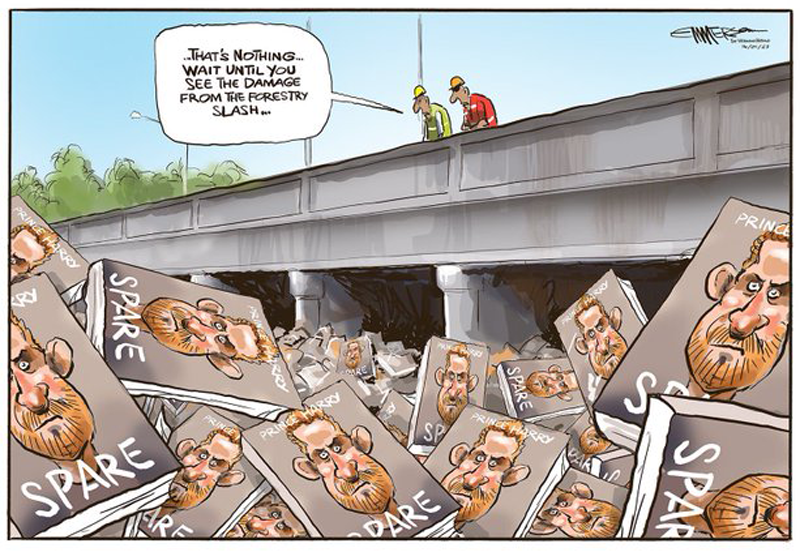
Rod Emmerson comments on Prince Harry’s book, and I appreciate that he is commenting on the impact of the book and on its massive sales rather than on its content. Now that the book has been out for several days, it is malpractice — a fancy word for “incredibly irresponsible and stupid” — to talk about what’s in a book you haven’t read.
On the other hand, as someone who’s lived much of his life in timber country, I had to wonder about his forestry crack, since, in this country at least, most paper produced from wood pulp is at least sustainably harvested, if not specifically taken from farmed trees.
However, I also know that, in Indonesia, rampant slashing of virgin jungle is the source for fast-food containers, so, assuming some of Harry’s books were published in New Zealand, it was worth looking into.
It turns out New Zealand papermaking is much like our own. The papermakers seem to be aware of the potential damage to the environment, farm a substantial amount of their pulpwood, and seem to be making an effort to minimize environmental impact.
Which is not at all a slam of Emmerson’s work, which I much admire, but, rather, an indication that intelligent humor can not only make people think but can even send them — at least the ADD ones — off to the googles.
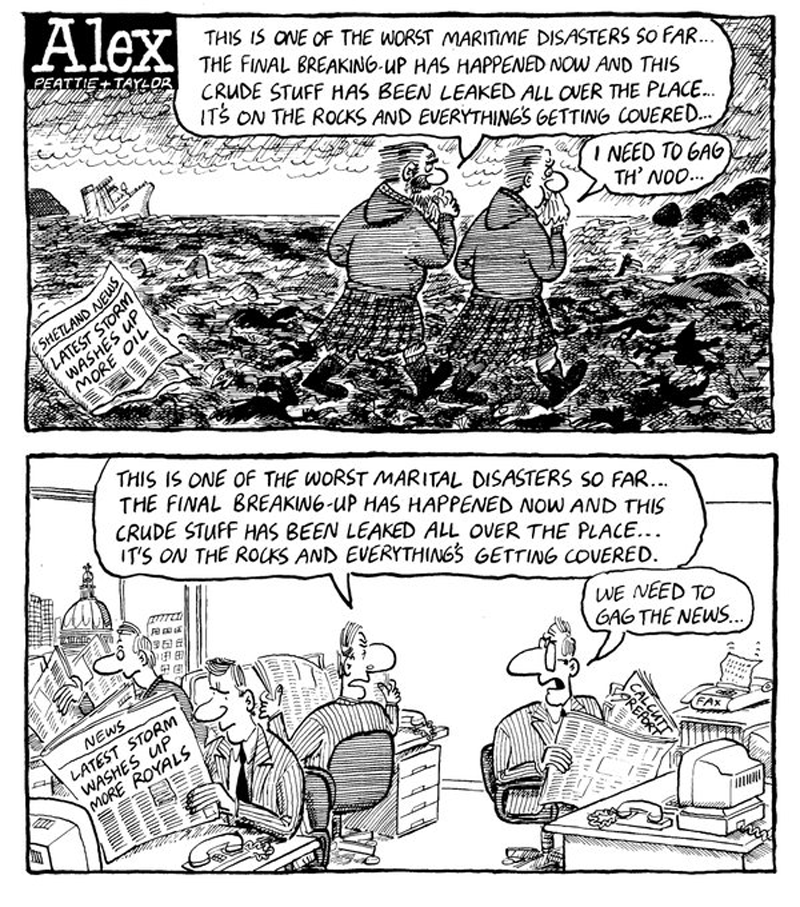
Meanwhile, back in the Mother Country, Charles Peattie posted this 1993 Alex from the days when Harry’s parents were finding their marriage in disrepair, to the delight of the tabloid press, and I was once more sent off to confirm what I guessed, which is that the Calcutt Report was an attempt to control invasion of privacy by the press.
The research was worth it, if only to uncover this quote from Conservative MP Jonathan Aitkin:
There is a cancer gnawing at the heart of the British press. At the lower end of the tabloid market, journalism has been replaced by voyeurism. The reporters’ profession has been infiltrated by a seedy stream of rent boys, pimps, bimbos, spurned lovers, smear artists bearing grudges, prostitutes and perjurers. That is the force that makes constituents say to members of Parliament: “Get on and do something about it.”
This will tell you more than even I wanted to know about that, though I already knew it was easier to sue a newspaper in Britain than it is here.
But the opinion piece cites not only tabloid spying on the royals (and Elton John) but the Sun’s irresponsible, exploitive coverage of the Hillsborough football stadium disaster which outraged Liverpool and sparked an ongoing boycott memorialized by Billy Bragg.
Juxtaposition of the Day
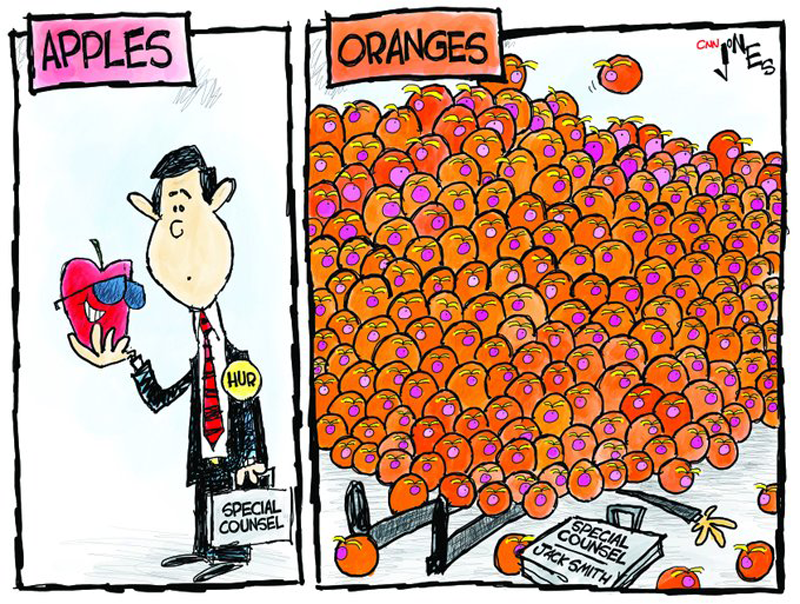
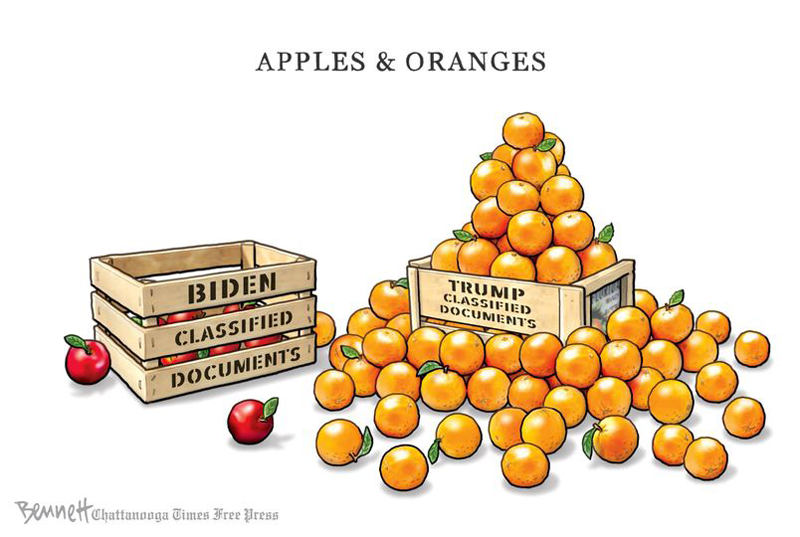
Here’s an example of what, in the NFL, is known as a “no call,” because while Jones posted his version first, Bennett’s followed so hard upon its heels that there’s no reason to throw a flag: There wasn’t time for one to have copied the other, and obviously they were both riffing on a phrase that applies to the non-scandal-scandal.
CORRECTION: As noted in the comments, Bennett published first, though Jones’s piece was already in process by then. Thus it remains an absolute coincidence with no chance of either cartoonist having seen the other’s work, but with the order of appearance reversed. My apologies to Clay Bennett for the error.
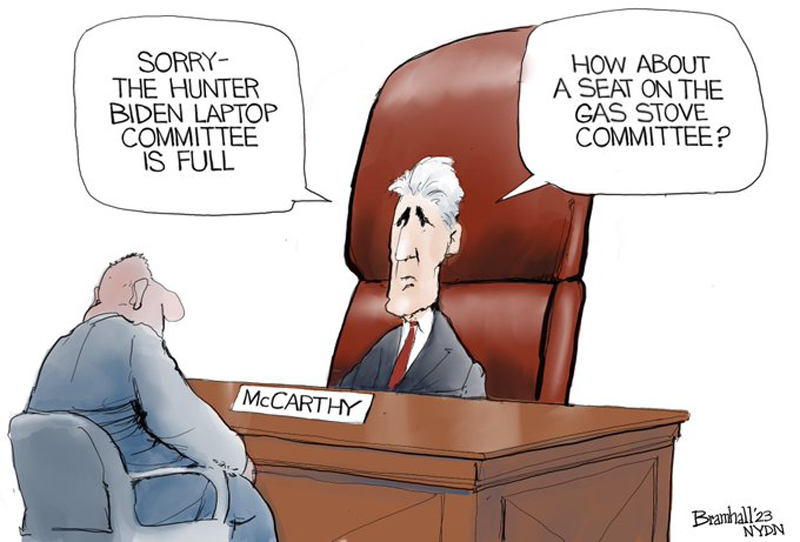
Bill Bramhall puts non-scandal-scandals in perspective, suggesting, without actually using, the old saying that a drowning man will clutch at a straw in desperate hope it will bear him up.
Though, in this case, promoting fictional scandals may be less a sign of desperation than a reference to the old joke that ends, “I don’t have to outrun the bear. I only have to outrun you.”
OJ originated the strategy, but he only had to hoodwink 12 sympathetic, gullible people.
It has since been considerably refined, though it still relies on finding an audience of people who ardently wish to be hoodwinked.
It’s the sime the ‘ole world over
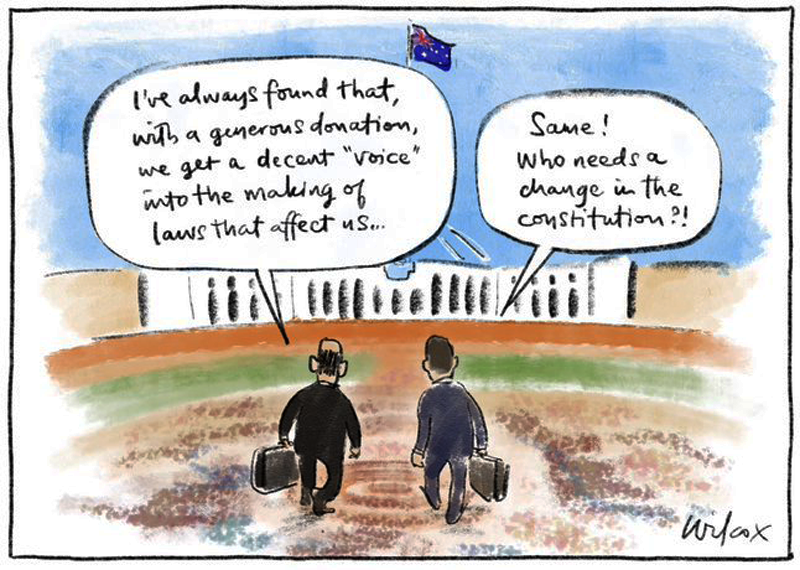
While, back in the Antipodes, it was nice of Cathy Wilcox to include an Australian flag in this cartoon so that those of us in the Propodes don’t think she was talking about us.
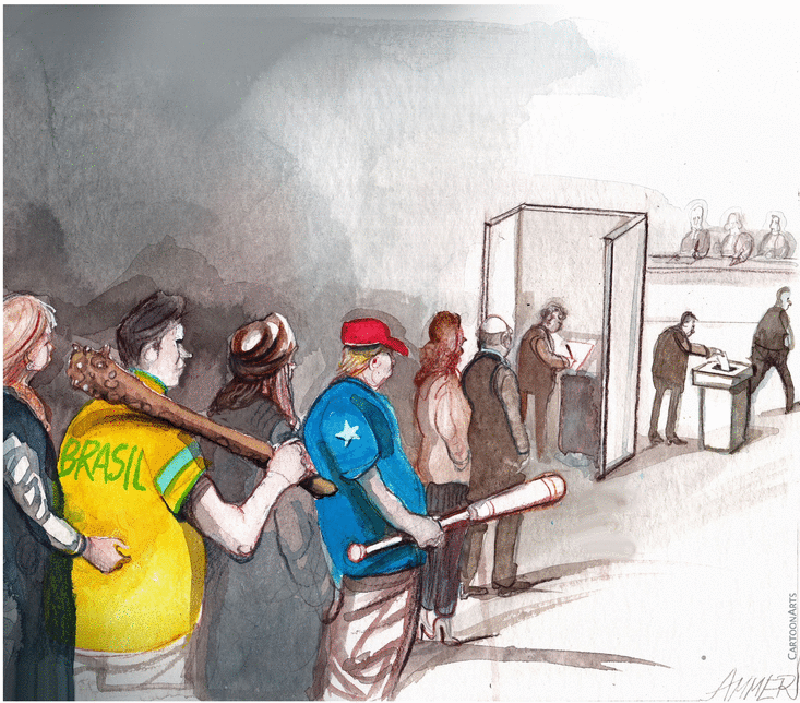
Still, the whole world is certainly watching, and Austrian cartoonist Wolfgang Ammer (Cartoon Arts Int’l) shows us what they’re seeing.
It’s not that the rest of the world has open and free elections, of course. But low expectations of elections in places like Russia and Iran have made the US, by contrast, a bastion of hope.
It would be lovely if our scandals were only our own, but, then again, you can hardly justify promoting American Exceptionalism if you’re not willing to be aggressive in making it a positive exception.
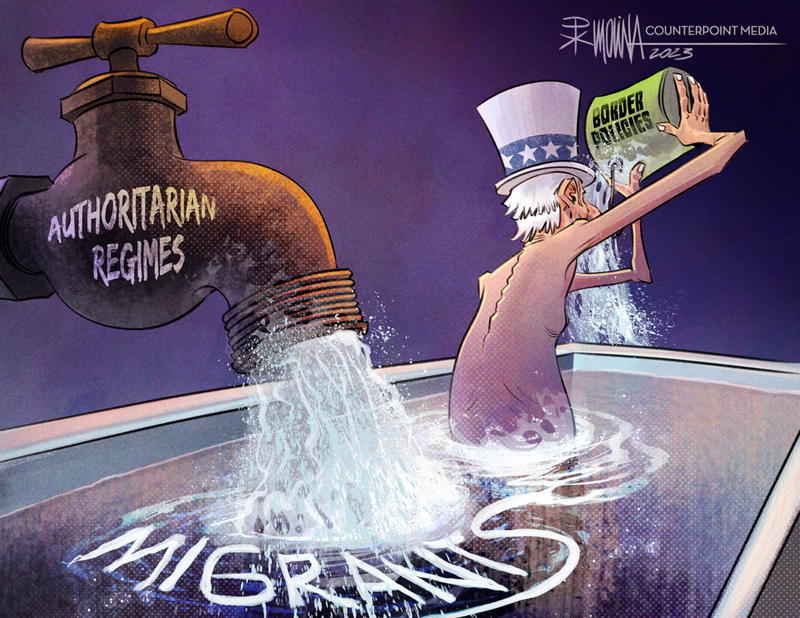
Pedro X. Molina (Counterpoint) had to flee Nicaragua for his outspoken cartoons, which makes it hard to argue with his opinion that being a bastion of freedom makes the US a popular destination for those living under dictatorships.
After having spent a good deal of time with Irish ex-pats, I once looked into the Scandinavian side of my heritage by going to a gathering of the Sons of Norway, and found a profound difference: My Irish friends were refugees, while these Norwegians were willing immigrants.
My great-grandfather, in fact, had come to America planning to make money in order to buy a farm in Denmark, only to decide, instead, to stay. It’s a marked difference from those who had no choice and were sorry to have left not just Ireland but, I began to learn, Latvia and Lithuania and Ukraine and any number of places in Africa, in Asia and in this hemisphere.
It argues that we might be better advised not to rely on building walls across our border, but to do more, as Molina suggests, to reduce the gusher of authoritarianism that spurs people to leave their homelands.
Building walls on our border is less expensive than building overseas democracies, but one is decidedly futile while the other seems likely to work.
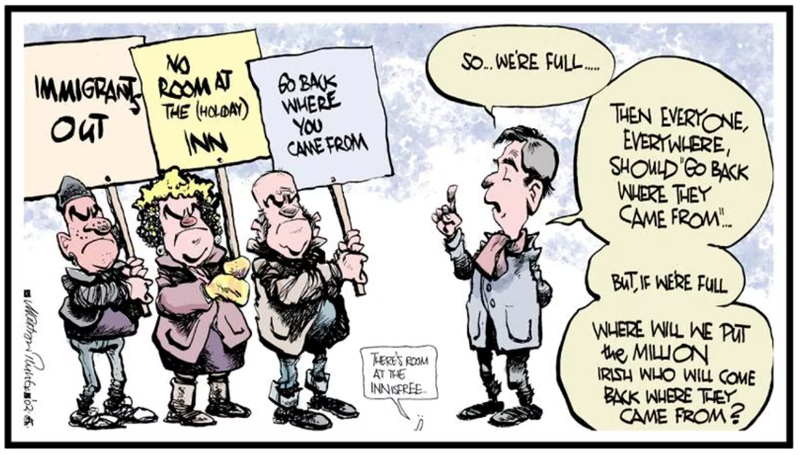
Granted, as Martyn Turner notes, even when a once-wretched province has become an economically resilient nation once again, there’s still the matter of bloody-mindedness to deal with. It seems a universal, even where the national anthem explicitly acknowledges the contributions of its wild geese.
Soldiers are we whose lives are pledged to Ireland;
Some have come from a land beyond the wave.
Sworn to be free, No more our ancient sire land
Shall shelter the despot or the slave.
But, as Bill Meek noted back when economics and politics were still emptying the island, bloody-mindedness is worth arguing against.

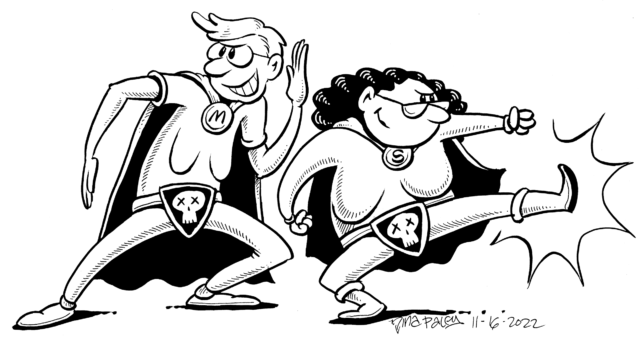
Comments 8
Comments are closed.